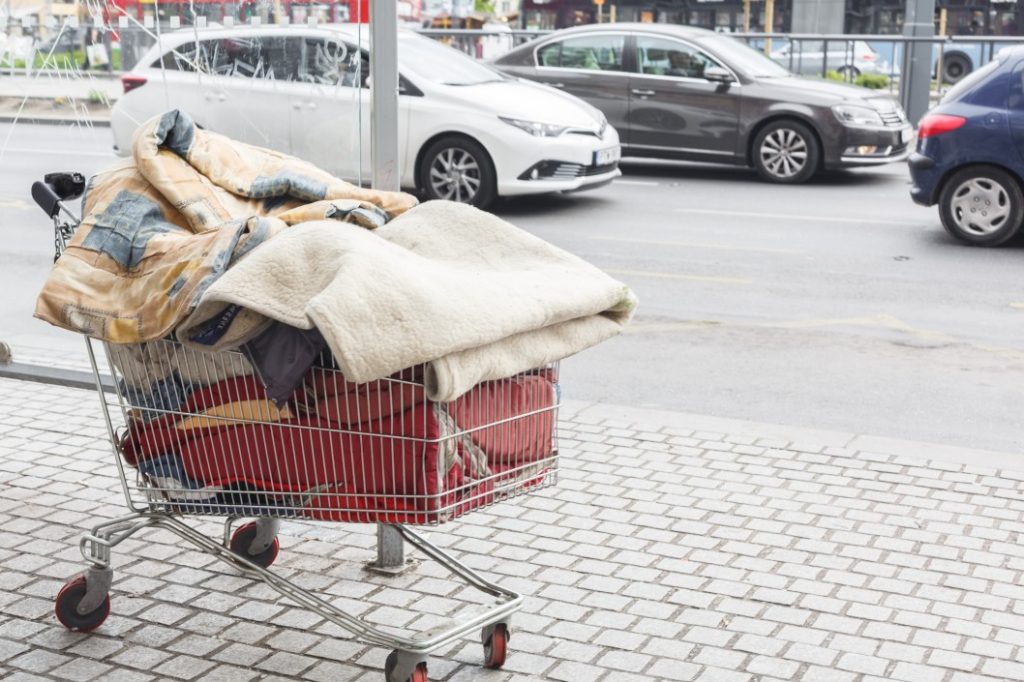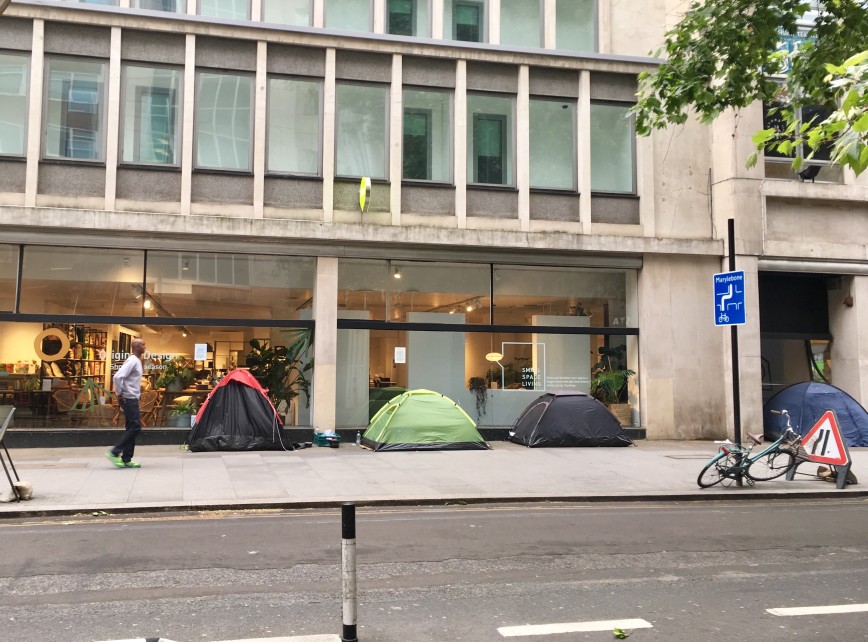
I volunteer at a kitchen for the homeless. This is how lockdown affected our customers.
Anyone living in London knows that homelessness is rife and that there appears to have been an exponential increase of people on the streets in the past few years. There are many misconceptions around homelessness, and we often rush past rough sleepers as if they have some sort of plague.
For the past two years, I have volunteered for the grassroots organisation Streets Kitchen, which provides meals to rough sleepers across London. On a typical morning distributing breakfast, it is not uncommon for volunteers at the Camden outreach to see up to fifty rough sleepers on the way from Camden Town station to Tottenham Court Road station which is less than a two-mile walk. Ironically, on this route is the furniture shop Habitat outside of which you can find a stream of tents where guests of ours have laid their figurative beds.
The first lockdown was an interesting phenomenon in terms of homelessness, as we saw an emergency government response whereby hotels had to open their doors to accommodate rough sleepers, meaning fewer people were sleeping on the streets. This taught us that solutions can present themselves in desperate times, and this fact sheds some light on housing (or at least shelter) availability to rough sleepers. On the other hand, lockdown brought its own surge of problems with homeless accessibility, particularly when people began being evicted from accommodations. Another recurring issue brought up by many of our guests was access to public services such as showers that had been closed off.
Even outside of this emergency response, having access to some form of shelter does not guarantee security and prosperity for homeless people. Oftentimes, individuals are put into shared hostels rather than housing. Many of our guests at Street Kitchen struggle with problems of addiction; one of our guests told me that trying to stay sober was very difficult when he was staying at the hostel, as he was surrounded by other people battling addiction too. He also experienced personal belongings being stolen by other hostel inhabitants. Even when homeless people manage to be admitted to a hostel they are stuck in perpetual vicious cycles such as addiction and being subject to violence, which is extremely difficult to escape, particularly without relevant and strong support systems in place.
There are also immigration complexities I have seen within the homeless community: rising tensions between British homeless people and migrants living on the streets. Many are from traveller communities in Europe, some who come over illegally as beggars. The recent EU resettlement scheme meant many of these individuals risked deportation after 30th June 2021.
This was a very touchy and polarising subject amongst the general public. As a solidarity centred organisation Streets Kitchen volunteers were of the general consensus that such legislation was abrupt. However, one must think of the socioeconomic implications that exist for a country when it faces illegal immigration. The question is also posed: should one be able to leave their country to beg in another? Immigration has undoubtedly enriched British culture. But can London tolerate a surge of illegal immigrants who have no desire to integrate outside of rough sleeping and begging? I cannot help but question the benefits to either party.
The solutions and causes of homelessness are often contentious. Although it is paramount that there are services for rough sleepers like access to showers, and the meal services which Streets Kitchen and other organizations provide, ultimately, the primary goal should be getting rough sleepers off the streets long term and giving them autonomy for lives that they can live with pride.

About the author
Yasmin Nabavi is a London based writer, recently graduating with a degree in Philosophy. She has volunteered with various grassroots organisations- Streets Kitchen in London, ECHO Refugee library and Musikarama in Athens. She has an interest in both journalism and fiction writing.
Yasmin is more concerned about uncovering truth than running with popular narratives. She thinks that with societies polarising political views it is increasingly difficult for people to engage in meaningful conversations. Especially as there is an intense atmosphere of Us vs Them brewing. Her journalism wishes to push boundaries and ask questions that people may find uncomfortable, particularly in the current ‘cancel’ culture.
In her spare time, you can find Yasmin writing poetry, dancing, and dreaming of the sea.
This article is part of our Voices of the Economy series. The project brings together the economic experiences and opinions of people from a range of different backgrounds and showcases voices which are not heard as often when we talk about the economy. To find out more and share your own story, click here.



